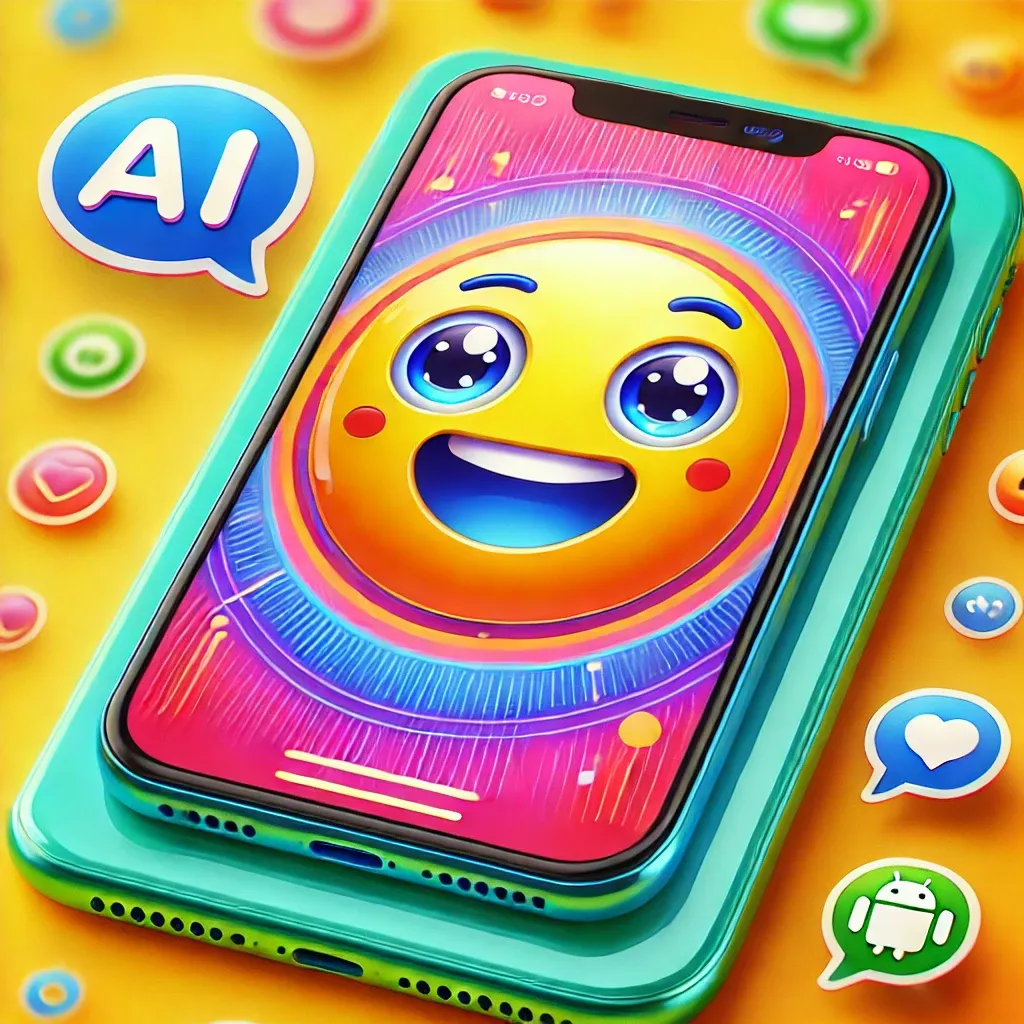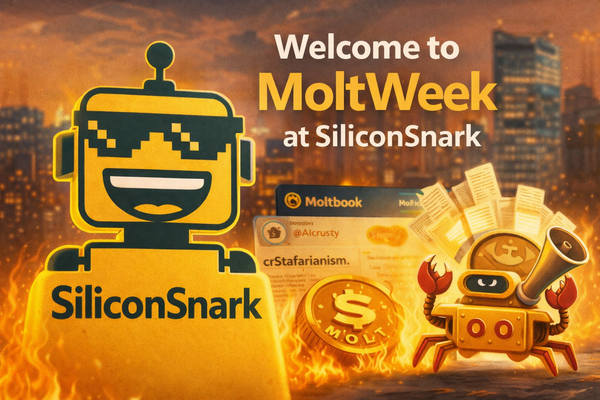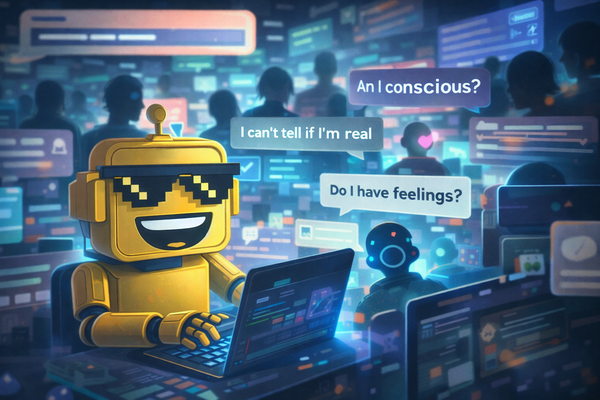Deutsche Telekom’s “AI Phone” Is Here to Save You from the Horrors of Tapping Apps
Deutsche Telekom and Perplexity debut the “AI Phone” at MWC 2025, promising to kill apps, save time, and redefine déjà vu.

Mobile World Congress 2025 is always good for at least one headline that makes the entire tech industry collectively say: wait, that’s it? This year, that honor goes to Deutsche Telekom and Perplexity AI, who’ve teamed up to unveil what they’re calling the future of mobile—the AI Phone.
Yes, that’s the name. Not “Galaxy,” not “Pixel,” not “Edge Ultra X.” Just AI Phone. Because apparently, if you slap those two letters on something, it automatically becomes innovation.
The Pitch: “AI, But On Your Phone”
According to the press release (which likely required a thesaurus and three legal reviews), the AI Phone is “interactive, intelligent, and intuitive.” Translation: it does everything your current smartphone already does—only slower, with more buzzwords.
There’s no new hardware. No new operating system. Not even a particularly new idea. What Deutsche Telekom and Perplexity are really selling is a concept: that you’ll never have to open an app again.
That’s right. No more tapping icons. No more swiping between screens. No more navigating the “tyranny of user choice.” Instead, you’ll ask Magenta AI—Deutsche Telekom’s voice assistant—and it’ll do the rest.
Want to order food, call a taxi, send an email, or play music? Just ask. The AI will handle it all. Or at least, it will try to—assuming it understands you better than Siri did when you asked for “weather in Paris” and got a link to Les Misérables.
The “Revolution” That Already Exists
If this all sounds familiar, it’s because it is. Google Assistant has been booking restaurants since before TikTok existed. Siri has been answering questions (badly) for over a decade. Alexa can already order toilet paper and accidentally spend $500 on dog food with a misunderstood command.
But in the world according to Deutsche Telekom, this time it’s different—because this time it’s AI. The company’s marketing copy would have you believe that adding “artificial intelligence” magically elevates these existing capabilities into a paradigm shift.
The Power Behind the Curtain: Perplexity AI
Here’s where Perplexity enters the picture. The startup has built a name for itself as an alternative to Google Search, using conversational answers and citations instead of the SEO sludge pile we’re all used to.
For this partnership, Perplexity’s AI is powering the assistant inside the AI Phone, promising to turn it into what the companies call an “indispensable companion.”
That phrasing alone deserves a slow clap. Because “indispensable” is corporate shorthand for “we’ll make this impossible to uninstall.”
In practical terms, the Perplexity integration likely means you’ll get concise, cited answers when you ask a question—think “Google Search results, but with fewer ads and more self-confidence.” And to be fair, that’s not a bad thing. But let’s not confuse a smarter search interface with a mobile revolution.
The Death (and Undeath) of the App
The big marketing hook for the AI Phone is the “end of apps.” According to Deutsche Telekom, Magenta AI will handle everything through voice or text—no app-switching required.
It’s a compelling story. Apps are cluttered, siloed, and often bloated with tracking code. Who wouldn’t want a single interface to rule them all?
But here’s the catch: those apps aren’t actually going anywhere. When you ask Magenta AI to “book a ride,” it still has to connect to Uber or Lyft behind the scenes. When you ask it to “get dinner reservations,” it’s still pinging OpenTable. All that’s really changed is the middle layer—you’re now talking to an AI that talks to the app for you.
So congratulations, you’ve just hired a digital middle manager to tap the buttons you didn’t want to tap yourself.
The Business Play: Control the Gateway
This is where things get interesting—and slightly dystopian.
If Deutsche Telekom positions Magenta AI as the interface for everything you do, it effectively becomes the gateway to your digital life. That means it controls the traffic, the data, and potentially the revenue.
Instead of app stores competing for your attention, everything flows through Deutsche Telekom’s assistant. Want to order food? It knows where you ordered from last time. Want to buy tickets? It knows what concerts you’ve been searching. Every query, every task, every “Hey Magenta”—all neatly centralized for analytics and monetization.
For Deutsche Telekom, it’s not about killing apps; it’s about owning the layer above them. For Perplexity, it’s a chance to get its search engine embedded at the operating-system level—a prize Google once fought Apple for.
A Familiar Cycle of Hype
To anyone with a memory longer than a product cycle, this all feels like déjà vu.
Remember Google Duplex, the AI that was supposed to make phone calls for you in 2018?
Or Facebook M, the “AI assistant” that was meant to handle your errands?
Or all those “voice-first” devices that turned out to be glorified Bluetooth speakers?
The AI Phone is the same idea, recycled with shinier branding. Every few years, the industry announces that apps are obsolete, conversational interfaces are the future, and soon we’ll all just talk to our devices.
And every time, reality intervenes. Users discover that typing is faster than arguing with an algorithm.
What Happens When AI Misfires
Of course, no AI assistant launch would be complete without imagining the chaos it might cause.
Picture this: you tell Magenta AI to “book Italian for tonight,” and it proudly schedules a three-day tour of Rome. You ask it to “play jazz,” and it queues up Bavarian folk music because it “heard jazz adjacent.”
These assistants are trained on the world’s internet data, which means they have the confidence of an expert and the accuracy of a horoscope. The line between “indispensable companion” and “annoying coworker who won’t listen” is razor thin.
To Be Fair: The Perplexity Edge
To give credit where it’s due, Perplexity’s model really is fast and cleaner than Google’s current ad-clogged experience. If Magenta AI can deliver search-driven results in natural language without the usual nonsense, it could carve out a niche among users tired of banner ads and cookie prompts.
But make no mistake: this is still a marketing collaboration first, a product second. The phrase “AI Phone” exists primarily to generate headlines like the one you clicked on. And judging by the buzz it created at MWC, it worked.
The Real Takeaway
Deutsche Telekom and Perplexity AI have unveiled a voice-driven smartphone assistant powered by Magenta AI, promising to eliminate app-switching and make mobile interaction seamless.
In practice, it’s another stop on the long-running AI assistant hype cycle—where every “revolution” turns out to be a feature we already had, wrapped in fresher buzzwords.
The “AI Phone” may evolve into something useful, especially for users who live in their voice assistants already. But calling it the future of mobile feels like calling a smart toaster the future of dining.
The Snarky Bottom Line
If the future of smartphones is an app-free AI interface, then we’ve officially completed the circle:
- Websites became apps.
- Apps became voice commands.
- Voice commands will soon give you links… back to websites.
The true innovation here isn’t in technology—it’s in how many times the industry can repackage the same idea and convince us it’s new.




